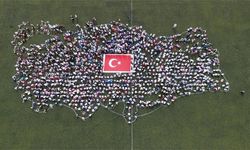In the past 24 hours alone, 14 new deaths were reported, while 2,598 individuals were admitted to hospitals due to the mosquito-borne disease.
This year's dengue-related fatalities represent the highest toll since the disease was first detected in 2000, with 804 reported deaths.
According to data released by the Directorate General of Health Services (DGHS), 881 dengue patients were hospitalized in Dhaka city, and 1,717 were admitted to hospitals outside the capital city during the same period.
Currently, 10,330 dengue patients are undergoing treatment at various hospitals, with 4,208 in Dhaka and 6,122 in other parts of the country.
The DGHS statement also revealed that among the total dengue-positive cases, 63,780 are female and 100,782 are male. Of the reported deaths, 489 are female and 335 are male.
August witnessed a significant surge in dengue cases, with 71,976 dengue-positive cases reported, the highest monthly figure since the outbreak began. In the same month, 342 dengue-related deaths were recorded. The outbreak has expanded beyond Dhaka city, with all 64 districts of the country now reporting dengue-positive cases.
In July, Bangladesh recorded 43,854 dengue-positive cases with 204 deaths. As of September 16, the authorities have reported 40,754 dengue-positive cases and 211 deaths due to the mosquito-borne disease during the same period.
Health experts have noted a changing pattern in the spread of the disease, which initially affected only Dhaka city but has now gripped the entire nation. Experts emphasize the importance of adhering to treatment protocols for dengue patients to prevent further deaths.
The dengue outbreak in Bangladesh remains a critical public health concern, with authorities and healthcare professionals working tirelessly to manage and mitigate its impact.
Dengue Fever: A Threatening Mosquito-Borne Illness
Dengue fever is a formidable mosquito-borne illness caused by the dengue virus. The primary mode of transmission is through the bite of an infected Aedes aegypti mosquito, which also serves as a vector for Zika and chikungunya viruses.
This health crisis is not confined to Bangladesh alone, as dengue fever remains a pervasive public health challenge in tropical and subtropical regions globally. It is estimated that a staggering 400 million individuals contract the dengue virus each year, resulting in approximately 25,000 deaths annually.
Typical symptoms of dengue fever include:
- High fever (40°C/104°F)
- Severe headache
- Pain behind the eyes
- Muscle and joint pain
- Nausea and vomiting
- Rash
In more severe cases, dengue fever can progress into a life-threatening form known as dengue hemorrhagic fever (DHF). DHF is characterized by bleeding tendencies, plummeting blood pressure, and organ dysfunction. Rapid medical intervention is crucial in such cases to prevent fatal outcomes.
As of now, no specific antiviral treatment exists for dengue fever, and medical care mainly revolves around supportive measures such as rest, adequate fluid intake, and pain relief. Hospitalization becomes imperative in cases of DHF.
Crucially, there is currently no vaccine available to prevent dengue fever. The most effective preventive measure remains the avoidance of mosquito bites through the use of protective clothing, mosquito nets, and repellents, especially in areas prone to dengue outbreaks. Vigilance and community-based mosquito control efforts are also crucial in curbing the spread of this debilitating disease. (ILKHA)









